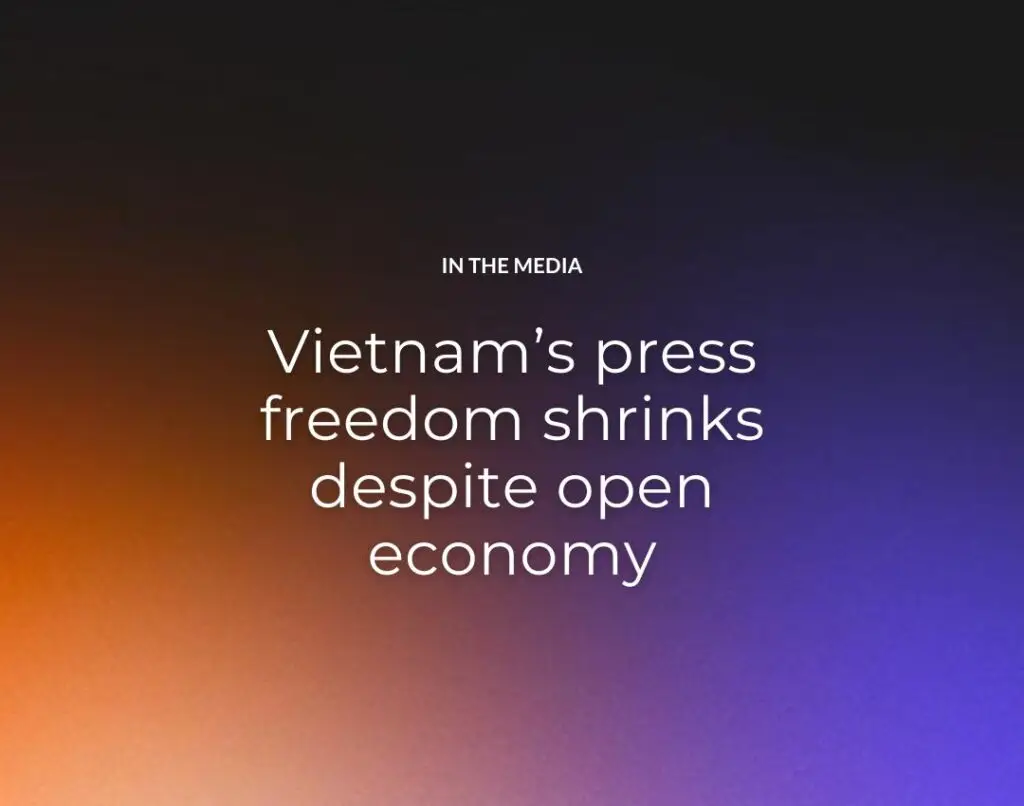By Shawn W. Crispin
CPJ
Sep 19, 2012
Vietnamese officials are stepping up repression of old and new media even as they promote an image of an open, globalized economy. Intense surveillance and imprisonment of critical journalists, coupled with increasingly restrictive laws, are choking the flow of information.
Geoffrey Cain, a researcher who has sought to identify patterns in Vietnam’s press censorship, told CPJ that interviews he conducted with local reporters suggested that press freedoms have been on a “downward spiral” since 2006, the year two local reporters broke news of a high-level scandal at the Ministry of Transport, known as PMU-18, and were later sentenced to prison for “abusing democratic freedoms.”
Yet Cain believes Communist Party leaders have recently allowed for more enterprise reporting on local-level corruption—a practice he described as “deliberately incomplete censorship”—as a way to discipline and humiliate provincial civil servants and police officials outside of the party’s central reach. Local journalists said they believe that increased factional competition inside the Communist Party has also made decision-making over the media less certain.
“The censorship boundaries have become so nebulous, and the security people are always keeping an eye on reporters, a sort of panopticon effect,” Cain said in an email correspondence with CPJ. “There seems to be less and less of a correlation between their reporting topics, their editing ranks, and whether or not they get in trouble. The party uses this uncertainty to keep them on their toes.”
Read more about Vietnam’s press censorship at CPJ (Committee to Protect Journalists)
See Also:





